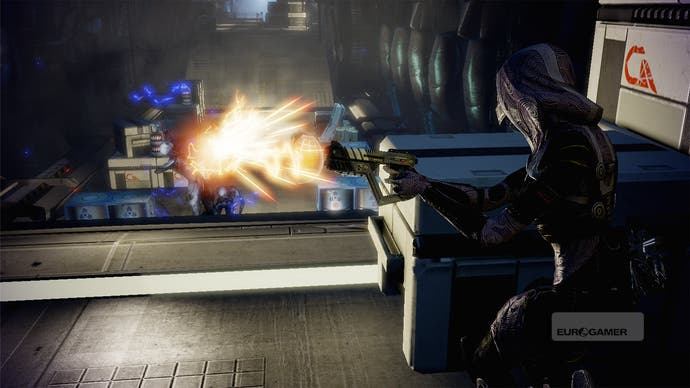BioWare's Dr Greg Zeschuk
At length on making Dragon Age, the toolset, and the merger with Mythic.
If you're a game developer who's prone to epileptic fits, repeated coronary occlusions, or regular spells of choking during lunch, you could do a lot worse than seek employment with BioWare, an RPG house run by not one, but two, MDs. With the release of Dragon Age: Origins looming, and a merger with stable-mate Mythic, the developer behind Warhammer Online, recently announced by parent company EA, we caught up with co-founder Dr Greg Zeschuk to discuss the ramifications of the new organisational structure, and what we can expect from the studio's latest, significantly darker take on fantasy. We also asked what he made of this strange lump on our neck. (It turned out to be peanut butter.)
Well, we've been with EA for a while. No, it's a funny thing. I think that why they are that way is interesting. Certainly, in the case of Dragon Age, it was to set it off thematically from the traditional perception of fantasy. People have been asking us, "Why have you been doing these more aggressive sex-and-violence trailers?" and a lot of it is to point out that fantasy isn't necessarily - I'm stealing this from a journalist in the US - it's not all "flutes, lutes and men in tights".
I think that was one of the things holding fantasy back. Obviously, Peter Jackson managed to break through that with the Lord of the Rings, and for us it's been that we've made a game that's very sophisticated, so it seems natural to follow that with very mature content. Also, it's typically our teams that really set the tone. Ray [Muzyka - co-founder] and I have very high-level goals, but the teams work on the moment-to-moment game, so the work they do is what translates into the experience that fans have most directly.

I think it's going to all come out in the product itself. It's hard to say what people are thinking. Generally the feedback's been favourable and people seem to like the game, but the litmus test is how many people end up buying it. Then the key thing for us is if the whole world fits together nicely, if it's contextually appropriate, and all the activities are unified with what the world seems to be. It's a very hard game to demo and show. Back when we were pitching the good old Baldur's Gate stuff, you'd get people who would sit at a kiosk and literally play it for an hour, and you didn't have: "15 minutes! Go! Show us Dragon Age!"

